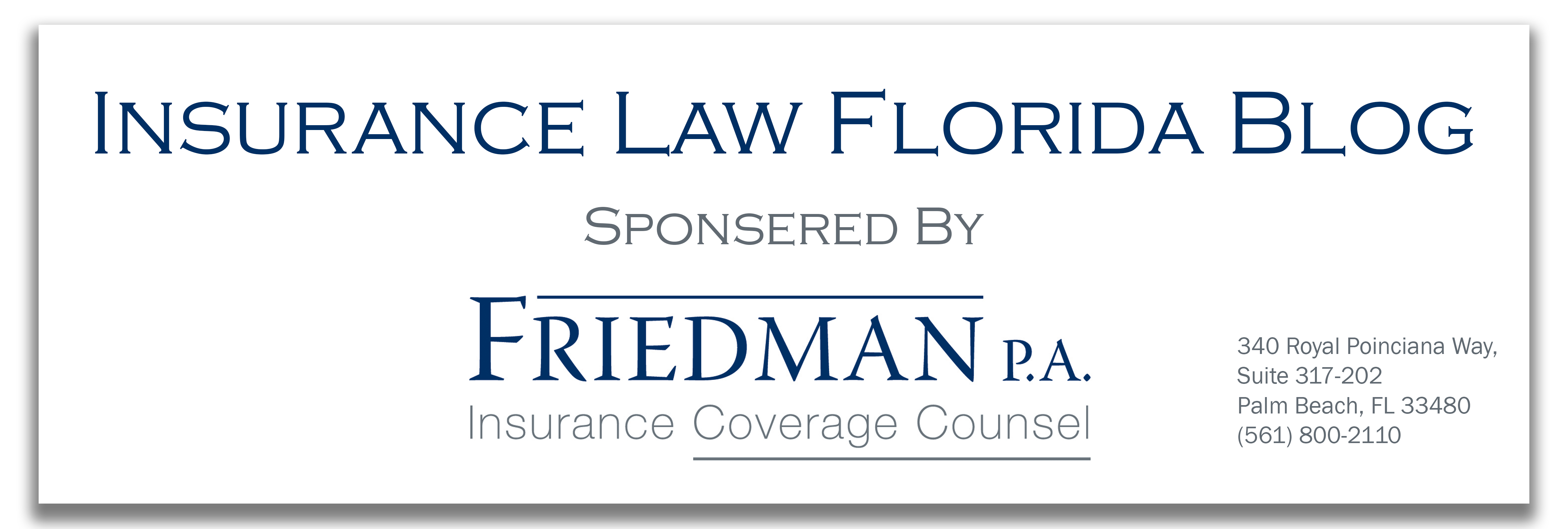It took the Florida Supreme Court two years after oral argument to come to its senses and reaffirm the right of Florida policyholders to sue their insurance brokers for negligence. The Court’s decision in Tiara Condominium Association, Inc., etc. v. Marsh & McLennan Companies, Inc., et al., No. SC10-1022 (March 7, 2013) is groundbreaking in several respects. Most importantly, it abolishes the economic loss rule in all contexts except product liability cases. If you do not know what the economic loss rule is, you can forget about it unless you do product liability work. It became, in short, a monstrosity of incomprehensible and illogical rules that severely restricted a plaintiff’s damages where a contract existed. Now, it is just a bad memory.
The Tiara decision is also groundbreaking in what it did not do. If the Court had bought into Marsh’s legal theories, insurance brokers in the state of Florida would have operated with near impunity. According to Marsh’s lawyers, all a broker had to do was get its clients to sign a contract stating that, if the broker procured the wrong insurance, the only damage the client could recover was a return of the broker’s fee. Marsh’s counsel also argued that an insurance broker is not a professional who clients rely on to procure the proper insurance, but rather a simple order taker, like a teenager staffing the drive through at McDonald’s.
Thankfully, the Supreme Court rejected Marsh’s position and went even further than the Eleventh Circuit asked it to in its certified question. Rather than address the question of whether insurance brokers are professionals, which would have exempted them from the protections of the economic loss rule, the Supreme Court eliminated the economic loss rule altogether in all cases but product liability cases. It was a bold move by the Court, and unquestionably the correct one.
The decision is somewhat disappointing from an insurance perspective because the Court punted on the question of whether insurance brokers are professionals in Florida. The Court had previously ruled in Pierce v. AALL Insurance Inc., 531 So.2d 84 (Fla. 1988) that insurance brokers are not professionals for purposes of the application of the professional malpractice statute of limitations (which is two years rather than the typical four-year statute of limitations for tort claims). As Justice Polston correctly points out in footnote 11 to his otherwise misguided dissent, a professional is a person who gives advice “using superior knowledge and training of a technical nature.” That sure sounds like an insurance broker to me. Not that it mattered to the ultimate decision after the Court threw the economic loss rule out the window, but Justice Polston was trying to tell the majority that it ought to reverse Pierce as well. And it should.
As anyone who follows this blog knows, I believe a good insurance broker is worth his or her weight in gold. A good broker has superior knowledge of the insurance market, and also has a deep understanding of her client’s business and the emerging risks that the client faces. A good broker advises a client on what insurance the client needs. A good broker asks questions that elicit information so that the broker can advise the client on risk and insurance issues that the client may not have even thought about. A good broker gives careful consideration to his client’s needs, and does not simply go thorough the motions of placing the “usual insurance” or renewing the current package without a second thought. A good broker makes the difference between a client who is insured and a client who is truly protected.
So I take no delight in seeing a broker on the other end of a malpractice lawsuit, particularly an excellent broker like Marsh. All this decision does is send the case back for further litigation on whether Marsh was negligent in the procurement of Tiara’s insurance. But what is critical is that the Supreme Court preserved the rights of policyholders to hold their brokers accountable for misplaced insurance.
I think it is an insult to all of the good insurance brokers out there to say that they are not professionals. To tell policyholders that they are out of luck when their insurance broker gives them bad advice would have just added injury to that insult.
